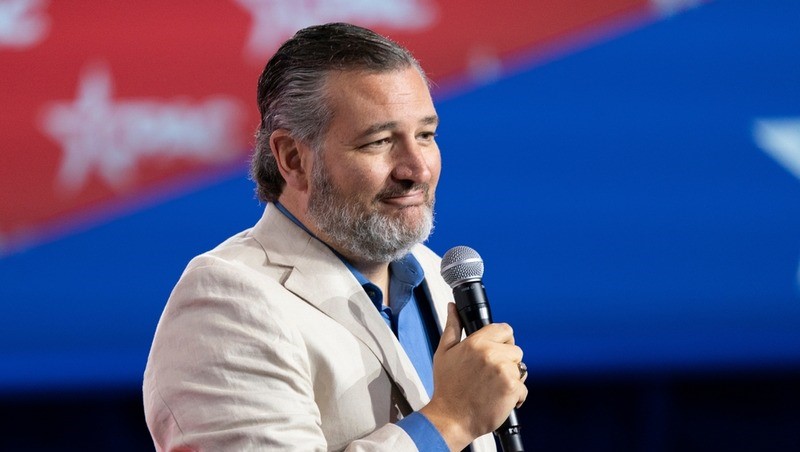
Senate Commerce Chairman Ted Cruz, R-Texas, is alleging in a new report that the Biden administration weaponized the Cybersecurity and Infrastructure Security Agency (CISA) by using it to police the speech of voters who supported President Donald Trump.
Cruz’s claims that CISA censored free speech echo those made by senior officials in the Trump administration, such as Homeland Security Secretary Kristi Noem, who alleged that CISA’s electoral security team attempted to censor Trump voters under the guise of targeting misinformation.
In 2020, Trump fired Chris Krebs, the director of CISA at the time, after Krebs said the election was conducted securely and without significant voter fraud. Those allegations were unfounded and unproven and came after Trump refused to accept his loss to former President Joe Biden.
However, Cruz’s new report takes those claims a step further, saying that artificial intelligence may be used to silence speech even more.
“While CISA focused its censorship efforts on social media, anti-free speech bureaucrats are now setting their sights on the next major technological advancement: artificial intelligence,” reads Cruz’s report.
“As members of Congress consider legislation to establish new AI regulations and AI-focused government agencies, they should keep in mind the Biden administration’s transformation of CISA—which Congress created with widespread bipartisan support to protect national security—into an unaccountable censorship agency,” the report continues.
Specifically, the lawmaker’s report claims that CISA was intended to secure election infrastructure, not communications regarding elections, but was used to regulate Americans’ speech alongside foreign speech, and that CISA asked large technology companies to further regulate content shared on their platforms.
Cruz also asserted that CISA engaged with nonprofit partners and that those partners aided the agency in its efforts.
“The Committee’s investigation revealed that CISA lacked authority to pressure social media companies to remove election related social media posts,” the report says. “At times, CISA’s nonprofit censorship partners questioned CISA’s authority to do this work. However, the social media companies that CISA directed to moderate content never appeared to question CISA’s authority.”
CISA officials have said that the agency never engaged in censorship, and that during the 2020 election, CISA officials worked with states to help them notify social media companies about misinformation on their platforms. Officials said they never instructed or coerced companies to regulate that speech.
Meanwhile, Cruz alleged that guidance published by the National Institute of Standards and Technology on AI that said developers of the technology should watch for potentially harmful content generated by their models also pushes on freedom of speech.
NIST’s “Assessing Risks and Impacts of AI (ARIA) program,” which red-teams AI products for risks including offensive and hateful speech, “illustrate[s] how NIST and the Biden administration had begun to establish a censorship apparatus for AI,” claimed Cruz.
The National Science Foundation (NSF) used its National Artificial Intelligence Research Resource (NAIRR) to then promote “responsible” AI development aligned with its AI Bill of Rights, emphasizing diversity, equity, and oversight, while allegedly signaling that it could govern technical standards for AI research – including monitoring speech and information deemed objectionable.
NIST’s ARIA and NSF’s NAIRR address hateful or offensive speech as part of their broader mission to ensure responsible and trustworthy AI development with the aims of reducing risks of harm, bias, or discrimination in AI systems.
